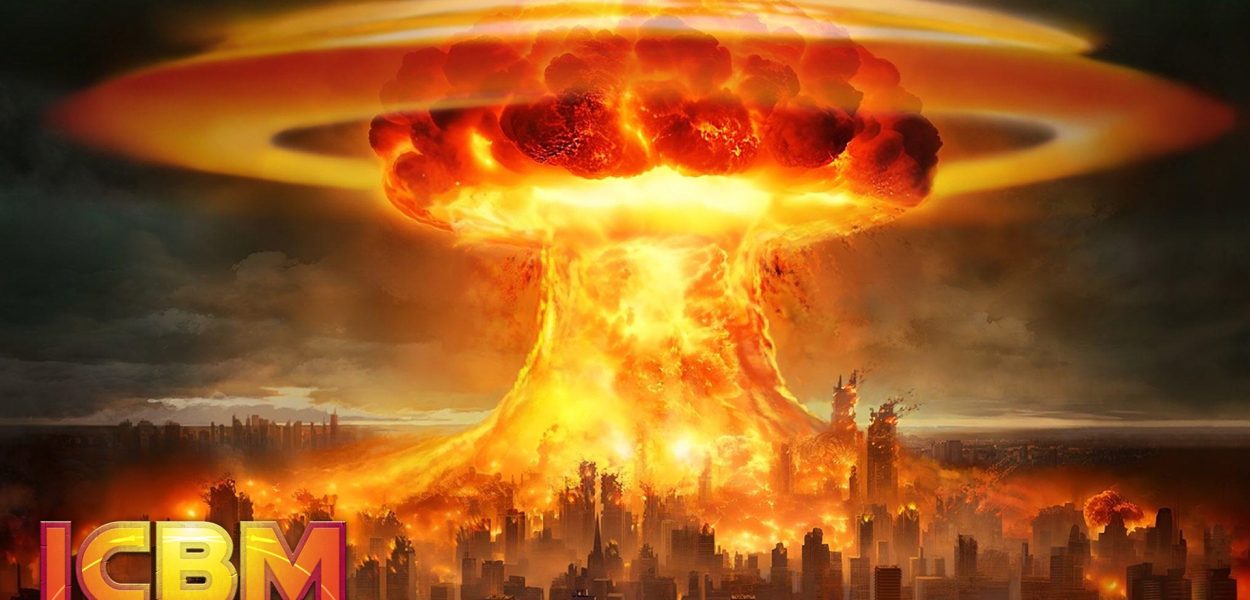ICBM: Escalation is a strategy game that thrusts players into the tense and high-stakes world of nuclear warfare, where every decision could trigger a global crisis. Here’s an in-depth review of the game, focusing on its mechanics, visuals, and overall experience:
Gameplay & Concept
In ICBM: Escalation, players take control of a nation’s military assets during the Cold War era (or a modern-day equivalent, depending on the scenario), with the ultimate goal of either deterring or engaging in full-scale nuclear war. The game blends elements of real-time strategy (RTS) and tactical planning, allowing players to manage resources, military units, and missile silos while preparing for or responding to nuclear strikes.
The primary focus of the game is on missile defense and offense—players will need to balance deploying intercontinental ballistic missiles (ICBMs) with creating effective anti-missile systems to defend their nation from incoming strikes. Strategic decision-making is critical, as players must manage limited resources while making crucial choices about where to launch attacks, when to prepare countermeasures, and how to avoid escalating tensions beyond the point of no return.
A unique feature of ICBM: Escalation is its focus on asymmetrical warfare. Players can choose to engage in cyber warfare, espionage, and proxy wars in addition to direct missile strikes, giving the game a level of depth beyond just launching missiles.
Visuals & Design
The game’s graphics are clean and functional, with a focus on maps, missile trajectories, and other strategic elements. The interface is highly informative, with real-time data and visual representations of missile paths, fallout zones, and military assets. While the visuals are not hyper-realistic, they serve the game’s purpose well, providing clear feedback on the status of the player’s assets and the world.
The map itself is a detailed world map where players can track international relations, missile silos, and defense installations, but it’s more utilitarian than eye-catching. Given the focus on strategy and decision-making, ICBM: Escalation prioritizes function over form.
Sound & Music
The sound design in ICBM: Escalation is fittingly tense, with ambient war sounds and the occasional radio chatter or announcement to set the mood. The background music is sparse but ominous, reflecting the tension of nuclear brinksmanship.
When a missile is launched or when a nuclear explosion occurs, the sound design effectively conveys the gravity of the situation, with deep rumbling sounds and a sense of impending doom. The radio-like communications, especially during missile alerts or military engagements, provide an immersive and realistic touch to the atmosphere.
Strategy & Decision-Making
What truly sets ICBM: Escalation apart is its emphasis on strategic thinking. Every action taken in the game has significant consequences, and even minor miscalculations can lead to disastrous outcomes. Deciding when to launch missiles, when to deploy countermeasures, and when to negotiate or de-escalate tensions requires a sharp mind and an understanding of the global landscape.
The game forces players to make morally difficult decisions, often putting them at odds with other world powers or allies. Should you strike first, or wait for an enemy to take the initiative? Can you trust diplomacy to prevent a nuclear war, or is the risk of conflict inevitable? These are the kinds of questions that ICBM: Escalation asks you to answer.
Espionage and intelligence also play a critical role. Players can hack into enemy communications, gain intel on their missile launch sites, or even sabotage their efforts through covert actions. Balancing conventional military tactics with intelligence and cyber warfare adds layers of complexity to the game, making it not just about missile launches, but about controlling information and the global perception of your actions.
Multiplayer & Replayability
ICBM: Escalation offers both single-player and multiplayer modes, but where it truly shines is in the multiplayer experience. Competing against human players adds an unpredictable element to the game, as human opponents can outthink AI-controlled nations. This makes for a highly replayable experience, as no two games will ever play the same way.
The multiplayer mode introduces a layer of diplomatic complexity, with alliances and betrayals adding to the game’s tension. Players can engage in discussions or form temporary alliances, but ultimately, everyone is fighting for survival in a world where any decision could lead to an all-out nuclear war.
The single-player campaign offers a more controlled experience, with missions that vary in difficulty and challenge. However, it can feel somewhat predictable after a few rounds, as the AI lacks the nuance and unpredictability of a human opponent.
Learning Curve & Accessibility
The game does have a steep learning curve, particularly for players unfamiliar with real-time strategy games or the complexities of nuclear warfare. The interface is rich with information, and it can take some time to learn how to navigate the various systems. However, once you’ve grasped the mechanics, ICBM: Escalation offers an engaging and rewarding experience.
While the game’s core mechanics are simple to understand, the depth of the strategy and the importance of foresight and planning make it a game that rewards careful thought. This isn’t a game where you can expect to just go in and start launching missiles right away—players need to develop a comprehensive strategy.
Final Thoughts
ICBM: Escalation is a game for players who enjoy deep, strategic thinking and the moral and tactical dilemmas that come with managing global conflict. It offers a complex and tense environment where every action carries weight, and players must weigh the risks of escalating tensions while preparing for potential nuclear warfare. The blend of military strategy, espionage, and decision-making make it a standout title for fans of high-stakes strategy games.
If you enjoy strategy games that focus on global power dynamics and the consequences of warfare, ICBM: Escalation offers a thought-provoking experience that rewards careful planning and decision-making.
System Requirements
Minimum:
Requires a 64-bit processor and operating system
OS: 64-bit Windows 10/11
Processor: 4-core CPU
Memory: 8 GB RAM
Graphics: GPU GTX 970
DirectX: Version 11
Storage: 8 GB available space
Sound Card: DirectX Compatible Sound Card
Recommended:
Requires a 64-bit processor and operating system
OS: 64-bit Windows 10/11
Processor: 8-core CPU
Memory: 16 GB RAM
Graphics: GPU GTX 1060
DirectX: Version 11
Storage: 8 GB available space
Sound Card: DirectX Compatible Sound CardPros
- Deep and engaging strategy with high replayability.
- A realistic portrayal of nuclear warfare, with a focus on diplomacy, espionage, and resource management.
- Tense and immersive atmosphere with effective sound and music design.
- Strong multiplayer experience with the unpredictability of human players.
Cons
- Steep learning curve, especially for beginners.
- Visuals are functional but not particularly exciting.
- Single-player mode can feel repetitive after a while.
In This Article














